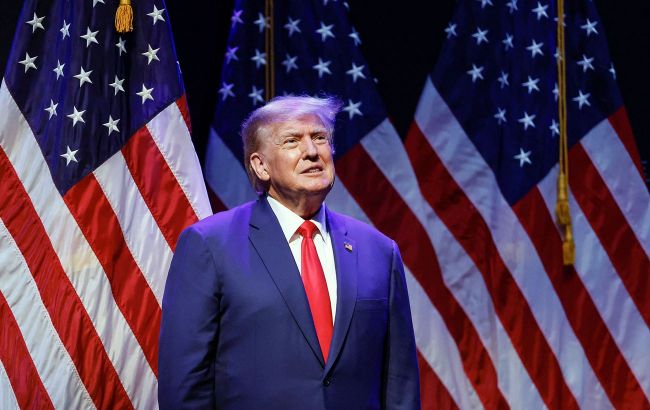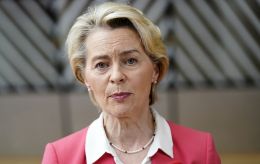Trump to seek negotiations between Ukraine and Russia if elected president
 Photo: former U.S. President Donald Trump (Getty Images)
Photo: former U.S. President Donald Trump (Getty Images)
If elected as the President of the United States in the November 2024 elections, Donald Trump will seek negotiations between Ukraine and the Russian Federation. This will reshape a decade of American policy, fracture defensive alliances, and weaken allies in Asia, particularly Taiwan, reports Bloomberg.
One of the advisors to the potential Republican candidate noted that the promise to cease military aid from the United States may help bring Ukraine to the negotiating table, while the likelihood of increasing American aid may push Russia towards more aggressive actions in response.
According to sources, Trump's advisors are discussing how to "bring to the negotiating table" Ukrainian President Volodymyr Zelenskyy and Russian dictator Vladimir Putin. One of the advisors pointed out that promises to stop providing military aid to Kyiv could encourage Kyiv to start negotiations with the aggressor.
In addition, among the possible steps, if Trump is elected, his allies have mentioned essentially creating a two-tier NATO alliance, where Article 5 of the Statute, which requires collective defense of any member under attack, would apply only to countries that have reached a certain level of defense spending. Some members of the Republican leader's team advocate for new NATO spending quotas from less developed countries to meet the alliance's needs.
It is noted that if these initiatives are implemented, they will reshape decades of U.S. policy, fracture the defensive alliance that has shaped European security since the Cold War, and seriously concern allies in Asia regarding Washington's commitments to counter China.
In particular, there have been recent speculations in Beijing that, if elected as U.S. president, Trump may cease U.S. support for Taiwan, increasing the threat of a Chinese invasion of the island. In July of the previous year, Trump avoided answering whether he would defend Taiwan in the event of a Chinese attack.
Meanwhile, the U.S. Ambassador to NATO, Julianne Smith, drew a direct connection between Trump's plans regarding Ukraine and China.
"Putin must understand that Western support is not waning, that he cannot, unprovoked, attack another country and infringe on their sovereignty. This is a message we need to send to Putin but also other countries around the world," she said in an interview with Bloomberg Television.
Pro-Russian rhetoric of Trump
During a rally in Conway, South Carolina, on February 10th, Donald Trump declared that if re-elected, he would not defend NATO allies who "do not pay their bills." This refers to the NATO statute stipulating that member countries should spend at least 2% of their GDP on defense.
He also added that, on the contrary, he would encourage Russia to attack such states.
President of the United States, Joe Biden, once again criticized Trump's statement, stating that it is tantamount to bowing to the Russian dictator Vladimir Putin.
However, NATO Secretary-General Jens Stoltenberg asserted that NATO countries will allocate record amounts for defense in 2024.

